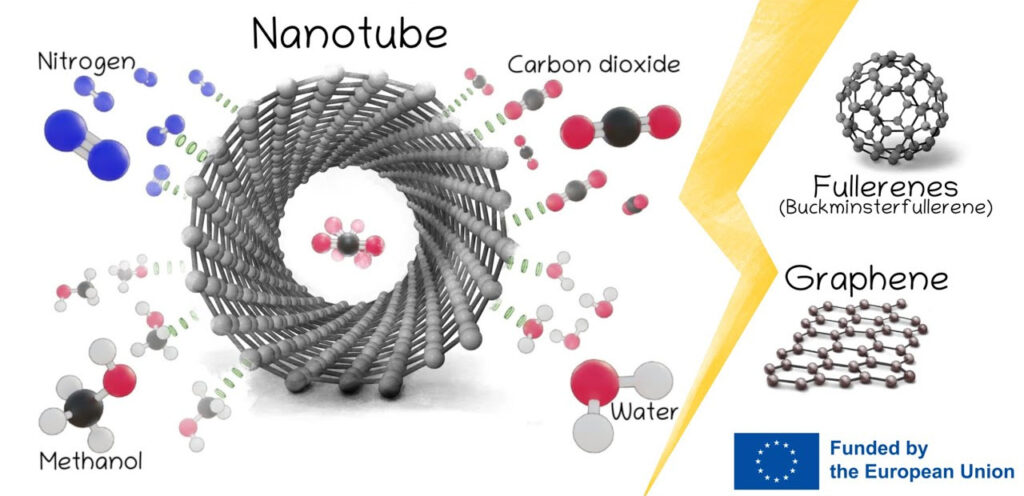The European Researchers' Night is one of the biggest (not only scientific) outreach events at European level, taking place in many cities in many European countries at the same time. To emphasise the European character of my research project SMINT (Scaling Molecular Intereactions in Carbon NanoTubes: a First Principle, Machine Learning and Spectroscopic Route), I went to present it in Vienna. It was a very rewarding experience! More than 30 groups of children and young people, as well as many adults, some of them also researchers, came to my table with curiosity and left saying that they had learned something new. I prepared different interactive materials with everyday objects, such as a roll of kitchen roll, a pair of egg boxes, ping-pong balls, some piled up paper, a pencil or some tape to explain concepts such as the lubricity of graphite, friction between layers of graphite, one of the many properties of carbon nanotubes that could be used to make membranes to filter contaminated water, and we even carried out an experiment worthy of a Nobel Prize! It was very exciting to see the youngsters concentrating on extracting graphene from a pencil, or filtering water with nanotubes - the kids didn't want to leave a single molecule of water unfiltered! XD
If you are curious to see and perhaps learn more about the different forms of carbon in nature, and how some of its many properties may bring great benefits in the near future, you can watch the different interactive activities I prepared in the video I recorded before an avalanche of curious young people with a thirst for knowledge stormed the fourth floor of the University of Applied Arts.
I am an MSCA UNA4CAREER postdoctoral research fellow and this project has received funding from the European Union’s Horizon 2020 Research and Innovation Programme under the Marie Sklodowska-Curie grant agreement Nº 847635.

